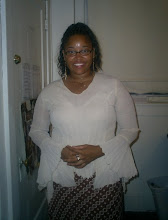"I was never afraid of death," he replied. "As Muslims, we believe that when we die, we go to heaven." He was no longer irritating his teeth with the piece of mishwak wood but talking slowly and continuously, leaning forward, his elbows on his knees. "Before a battle, God sends us seqina - tranquillity. Once I was only 30 metres from the Russians and they were trying to capture me. I was under bombardment but I was so peaceful in my heart that I fell asleep. We beat the Soviet Union. The Russians fled ... My time in Afghanistan was the most important experience of my life."
The Great War of civilization is a wide- ranging description of the Middle East. It speaks on the past and the present. Robert Fisk made it his duty to explain the wars that have taken place since 1976. Because Fisk was pretty much an eye witness on behalf of the Middle East, I believe he was able to report with passion and anger. He spoke on the killings and hatred of the west by so many Muslims. I believe that Fisk’s main goal when he wrote this book was to help the reader understand why 9/11 took place.
Fisk interviewed Bin Laden three times. I believe that Fisk’s reported his interview openly, critically, and sometimes sarcastically. I could see through this chapter that Fisk is devoted to Arab-Israeli conflict.
In his first interview with Bin Laden, Fisk describes him;
“His hands were firm, not strong, but, yes, he looked like a mountain man. The eyes searched your face. He was lean and had long fingers and a smile which- while it could never be described as kind- did not suggest villainy.”
Fisk said, “He was a machine checking out another machine.”
Although Fisk seemed pretty objective in the beginning, I believe by the end of the book subjectivity somewhat took the lead. At the beginning Fisk referred to Bin Laden as a “monstrous beast”
“The monstrous beast figure he would become in the collective imagination of the world.
Robert Fisk is an excellent reporter. I believe that he followed the principles of ethics completely. He definitely considered the principle of limitation. He referred to many as Arabs. I could also see that he may have filtered out a lot of information for confidentiality purposes. He made sure that he quoted the important pieces from the interview.
I believe that Fisk wanted to tell Bin Laden’s story. He wanted the reader to somewhat understand why Bin Laden was so bitter.
“"What I lived through in two years there," he said, "I could not have lived in a hundred years elsewhere. When the invasion of Afghanistan started, I was enraged and went there at once and I went on going back for nine years. I felt outraged that an injustice had been committed against the people of Afghanistan. It made me realise that people who take power in the world use it under different names to subvert others and to force their opinions on them."
Some common elements that this piece included were objectivity, sources, and accuracy. I don’t believe that he had a problem with slander or libel. I don’t think that any reporter discussing an interview with Bin Laden would give false statements!
Fisk also gave really good detail. He described Bin Laden and the men surrounding him.
“What did he think about the war in Algeria? I asked. But a man in a green suit calling himself Mohamed Moussa - he claimed to be Nigerian although he was a Sudanese government security agent - tapped me on the arm. "You have asked more than enough questions," he announced. So how about a picture? Bin Laden hesitated - something he rarely did - and I sensed that prudence was fighting with vanity. In the end, he stood on the new road in his gold-fringed robe and smiled wanly at my camera for two pictures, then raised his left hand like a president telling the press when their time was up. At which point Osama bin Laden went off to inspect his highway. “
My overall opinion of Fisk is that he is a great reporter. His use of words was exquisite. After reading this chapter I believe that Fisk is a legend. On the other hand I don’t really care for ‘the man.’ I have questions in the back of my mind like, Is he really close to Bin Laden? He interviewed him three times. Why did Bin Laden feel so confident in talking to Fisk? Why didn’t Bin Laden kill Fisk?
The "evils" of the Middle East arose from America's attempt to take over the region and from its support for Israel. Saudi Arabia had been turned into "an American colony".
Subscribe to:
Post Comments (Atom)

No comments:
Post a Comment